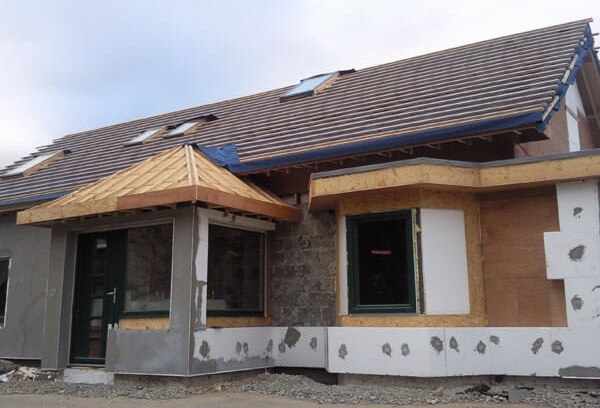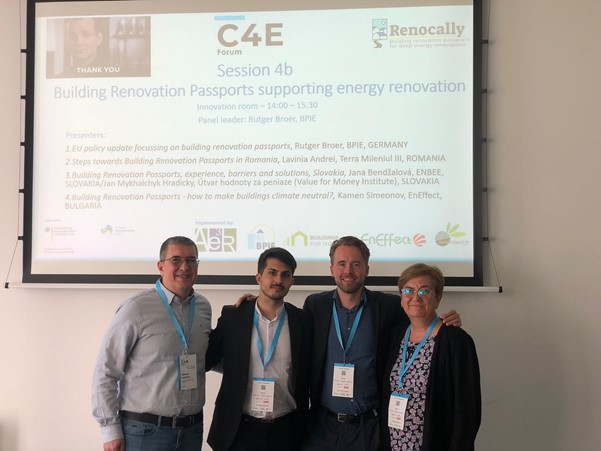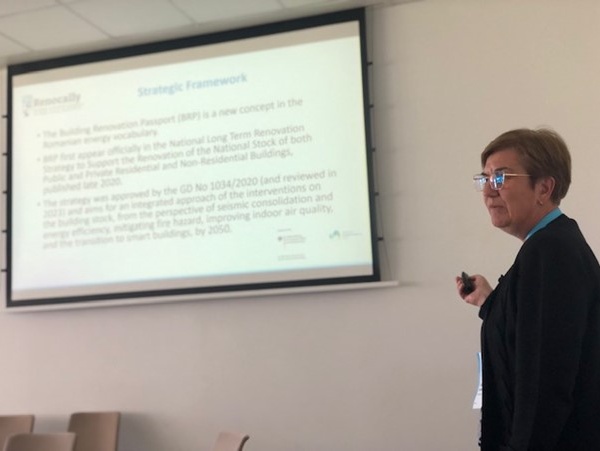Renocally Puts Building Renovation Passports on the Agenda at the C4E Forum
On 25 May 2023, EUKI project Renocally organised a workshop on “Building renovation passports supporting energy renovation” at the Central and Eastern European Energy Efficiency (C4E) Forum in Šamorín, Slovakia. During the session, Central and Eastern European (CEE) building experts discussed the challenges and opportunities for building renovation passports.

The C4E Forum brings together relevant actors from the industry, policymakers, and researchers to discuss pressing issues related to energy efficiency in buildings. The 2023 edition focused on energy security, rebuilding Ukraine and EU policy.
Renocally’s workshop fitted in well with this year’s program. Building renovation passports (BRP) have the potential to reduce energy dependence on fossil fuels and are featured in the new Energy Performance of Buildings Directive (EPBD) recast proposal, the key European Directive aimed at decarbonising the building stock.
One of the leading questions during the workshop and breakout sessions was how BRPs can be implemented to support energy renovations in CEE. To answer this question, Renocally’s project manager Rutger Broer (BPIE – Germany) and national experts Kamen Simeonov (EnEffect – Bulgaria), Lavinia Andrei (Terra Milenuil III – Romania), and Jana Bendžalová (ENBEE – Slovakia) presented recommendations on how the renovation passports could be implemented in these countries.
Renovation passports are being developed for municipal buildings as part of the Renocally project, and during the session experts highlighted their positive impact for, specifically, building owners. Some of the benefits mentioned were ensuring measures are implemented in the right order (to avoid lock-ins and unnecessary costs), proposing measures with the highest energy efficiency benefits, and providing long-term strategies to achieve zero-emission buildings. Additionally, panelists explained that BRPs are not only beneficial for private owned buildings, but also for public buildings such as schools and offices.
Renocally partners at the C4E Forum, Photo: ©BPIE
Another important point that experts brought up in the workshop was the need to integrate BRPs into existing building performance systems. Particular attention was put on presentations about energy performance certificates (EPCs), the most relevant energy performance information instruments, and how those are validated and issued in each country. Speakers agreed that linking BRPs and EPCs could simplify building renovation processes for homeowners by gathering all information in one place. Experts also mentioned that the quality of EPC’s data is important because it has an impact on BRP’s recommendations. Finally, they all agreed that BRPs could be reflected in the training of energy auditors, who are responsible for issuing EPCs and have a key role in implementing BRP schemes in the CEE.
Johann Strese (attendee) from the Initiative Wohnungswirtschaft Osteuropa (IWO) e.V. said that BRPs are “tools with potential to guide homeowners in CEE through the refurbishment process. The breakout session brought insightful discussions about the challenges and opportunities for implementation.’’
Since there are not yet any official BRP schemes in Bulgaria, Romania and Slovakia, most questions during the breakout sessions were related to the challenges to implement national BRP schemes and opportunities for tailoring those to national conditions. This resulted in recommendations for policymakers to unleash the potential of BRPs in CEE. Following these recommendations, BRP should:
- Be linked with national energy performance certificate schemes;
- Be based on reliable data. The reliability and comparability of existing data from energy performance certificates should be improved;
- Provide a renovation roadmap towards highly efficient zero-energy buildings;
- Be facilitated by and linked to innovative and accessible financing instruments;
- Make sure that training programs on zero-emission renovations and BRP development are made available to energy auditors and other relevant building professionals;
- Make sure that this knowledge is implemented and tested in more pilot projects and learns from the experience from existing BRP/EPC projects in the region.
Overall, these recommendations will contribute to the work done in Renocally. With EUKI’s support, Renocally is building BRPs experience and capacity for public buildings in municipalities in CEE.
Get in touch for more information and see you at the next C4E!


